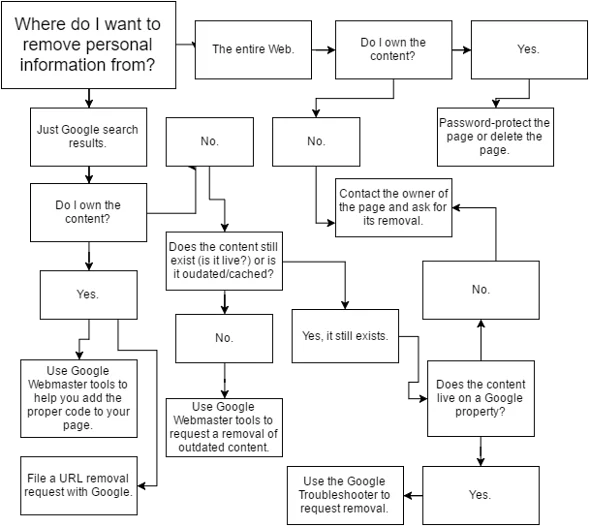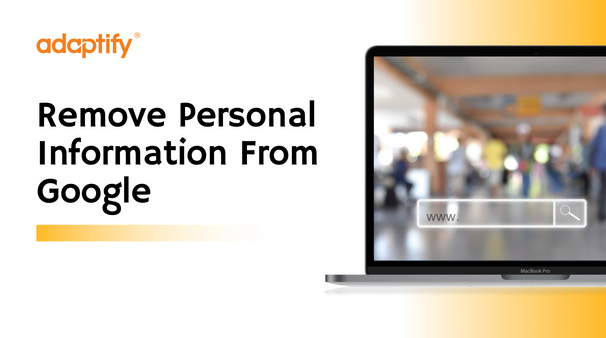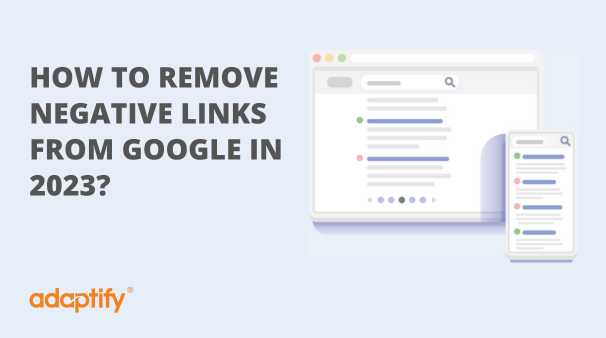Content
- Why is My Personal Information on Google and When Should I be Worried?
- Limiting Exposure to Personal Information in Searches
- Removing Personal Information From the Internet
- Do You Own the Content?
- If You Don't Own or Control the Site, the Information is on
- Removing Personal Information Searches from Google
- When to Use a Reputation Expert for Google Personal Info
- Frequently Asked Questions
You may think that removing your information from search results would be a simple task like discarding a file in a virtual trash can. However, the reality of the internet is far more complex and unpredictable. Once information goes “live” on the web, it can quickly propagate to various other websites and social media platforms, making it challenging to completely erase its presence.
The internet’s vast interconnectedness means that content can be shared, copied, and archived by others, making it difficult to control its dissemination fully. Even if you manage to remove information from one source, it may already be cached or archived elsewhere, remaining accessible through various avenues. This blog focuses on removing personal information from the internet.
Why is My Personal Information on Google and When Should I be Worried?
- Full Name: Your full name, especially when combined with other details, can be used to identify and track you online.
- Date of Birth: Birthdates are often used as security or verification questions, making them valuable to potential attackers.
- Home Address: Revealing your home address can compromise your physical security and privacy.
- Social Security Number (or National Identification Number): This sensitive number is a primary target for identity thieves and should be kept confidential.
- Financial Information: Bank account numbers, credit card details, and other financial data should never be shared openly.
- Passwords and PINs: Never disclose your passwords or PINs to anyone and avoid using easily guessable combinations.
- Email Address: Your email is linked to various accounts, making it a target for phishing attempts and spam.
- Phone Number : Sharing your phone number can lead to unsolicited calls, texts, and potential scams.
- Photos and Videos: Be cautious about sharing images or videos that reveal sensitive or private aspects of your life.
- Health Information: Medical records and health conditions should be protected to avoid potential misuse.
- Work-related Information: Avoid disclosing sensitive work-related details that could compromise your job or employer.
- Location Data: Be mindful of sharing real-time location information on social media or apps, as it can compromise your safety.
- Social Media Activity : Be cautious about sharing personal opinions or information that may be used against you.
- Personal Relationships: Be selective about sharing information about family, friends, or romantic relationships.
Limiting Exposure to Personal Information in Searches
While it’s true that you can’t ensure someone hasn’t saved your personal information offline, there are proactive steps you can take to minimise the impact. It will also help to limit exposure once a leak occurs. Here’s some good news:
You have the power to implement damage control measures to mitigate the consequences of leaked personal information. Start by promptly reporting the incident to relevant authorities and platforms to address the issue. Change your passwords and update your security settings to prevent further unauthorised access. Regularly monitor your financial accounts and credit reports for any suspicious activity.
Be cautious about sharing personal information online and limit the data you disclose on social media platforms. Utilise privacy settings to control who can view your content and keep personal details private.
Educate yourself about common online scams and phishing attempts to avoid falling victim to malicious attacks. By staying vigilant and taking proactive measures, you can significantly reduce the impact of leaked personal information and safeguard your privacy in an increasingly digital world.
Removing Personal Information From the Internet
Aside from hiring online reputation experts like our team at Adaptify, you can take certain actions to work toward removing web pages with personal information on them. Here’s a flowchart to help you begin:

Do You Own the Content?
If You Don't Own or Control the Site, the Information is on
- If someone else posted information about you on their Facebook profile, it is best to contact that individual directly. In case they are unresponsive or unwilling to cooperate, you can reach out to Facebook's support team to report the content and request its removal.
- In situations where a defamatory or harmful article about you appears on a media site, it is essential to contact the media company responsible for publishing the content. This process can be challenging, particularly if the journalist or blogger had negative intentions from the start.
Removing Personal Information Searches from Google
1. Sensitive personal information, such as bank account numbers or social security numbers.
2. Images of handwritten signatures.
3. Nude or sexually explicit images or videos that have been shared without consent.
When to Use a Reputation Expert for Google Personal Info
Frequently Asked Questions
Google will remove specific types of sensitive personal information from its search results upon request. The types of information that Google may consider for removal include:
Social Security Numbers: Your Social Security number is a sensitive piece of personal identification that Google may remove from search results.
Bank Account Numbers: Google can remove bank account numbers if they appear in search results and are shared without consent.
Credit Card Numbers: Google may remove credit card numbers that are exposed in search results without authorisation.
Images of Signatures: If images of handwritten signatures are publicly available in search results, Google may consider removing them.
Nude or Sexually Explicit Images: Google can remove nude or sexually explicit images or videos that were uploaded or shared without the individual’s consent.
It’s important to note that Google reviews removal requests on a case-by-case basis, and they must align with their policy and guidelines. If you encounter any of the above types of sensitive information in Google search results and believe it should be removed, you can submit a removal request to Google for consideration.
Google typically does not remove certain types of personal information, even if they are publicly available in search results. Some examples of information that Google is less likely to remove include:
⦁ Birthdays: Generally, Google does not remove public birthdates from search results, as they are not considered sensitive personal information.
⦁ Addresses: Publicly available addresses, such as business addresses or public figures’ addresses, are typically not removed by Google.
⦁ Telephone Numbers: Google may not remove publicly available telephone numbers, especially those associated with businesses or public figures.
While Google is more willing to remove sensitive personal information like social security numbers, bank account numbers, credit card numbers, images of signatures, and non-consensual explicit content, certain other personal details that are considered part of public records or widely available may not be eligible for removal.
As with any removal request, Google reviews each case individually and considers its policies and guidelines before deciding. It’s essential to understand Google’s removal policies and manage personal information carefully to protect privacy and online reputation effectively.
To remove content from Google or the web, you can employ various strategies depending on your specific goals and circumstances. Here are some common approaches:
Direct Removal from the Source: If you have control over the content or own the website where the content is hosted, you can remove it at the source by deleting or modifying the content directly.
Requesting Removal from the Author or Webmaster: If you don’t own the content, but it is hosted on a website or social media profile controlled by someone else, you can reach out to the author or webmaster and request them to remove the content.
Legal Takedown Requests: If the content is defamatory, violates copyright, or infringes on other legal rights, you can send a formal legal takedown notice to the hosting provider or platform. It may prompt them to remove the content to comply with legal requirements.
Suppression Campaigns: In cases where content removal is not possible or feasible, you can implement a suppression campaign.
Online Reputation Management (ORM): Engaging in ORM strategies help you actively manage your online presence and reputation. It ensures that positive and accurate information is prominently displayed in search results, overshadowing any negative content.
Remember that content removal from the web can be complex, and success may vary depending on the nature of the content and the platforms involved. Consider seeking professional assistance from reputation management experts, especially for challenging cases.











